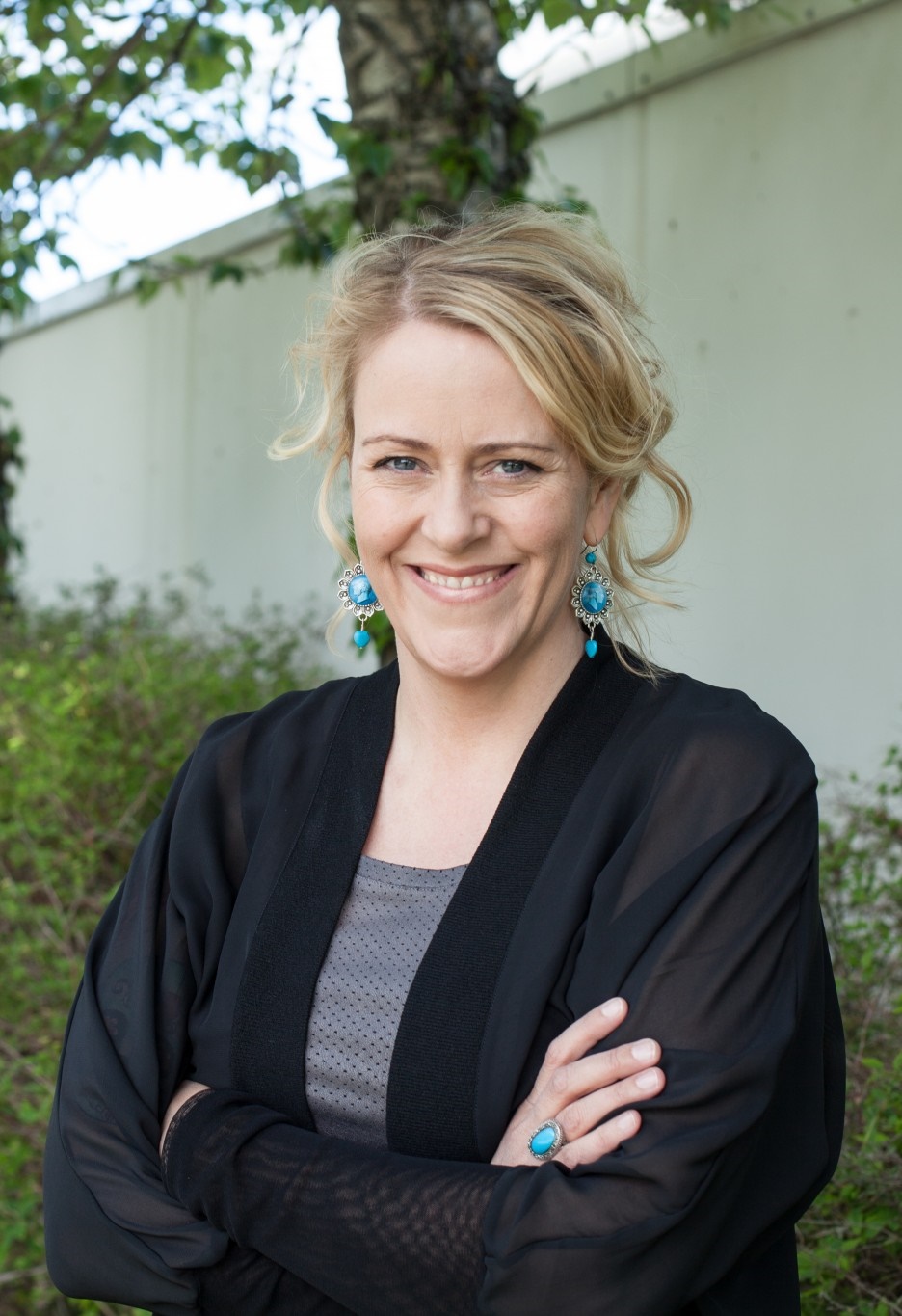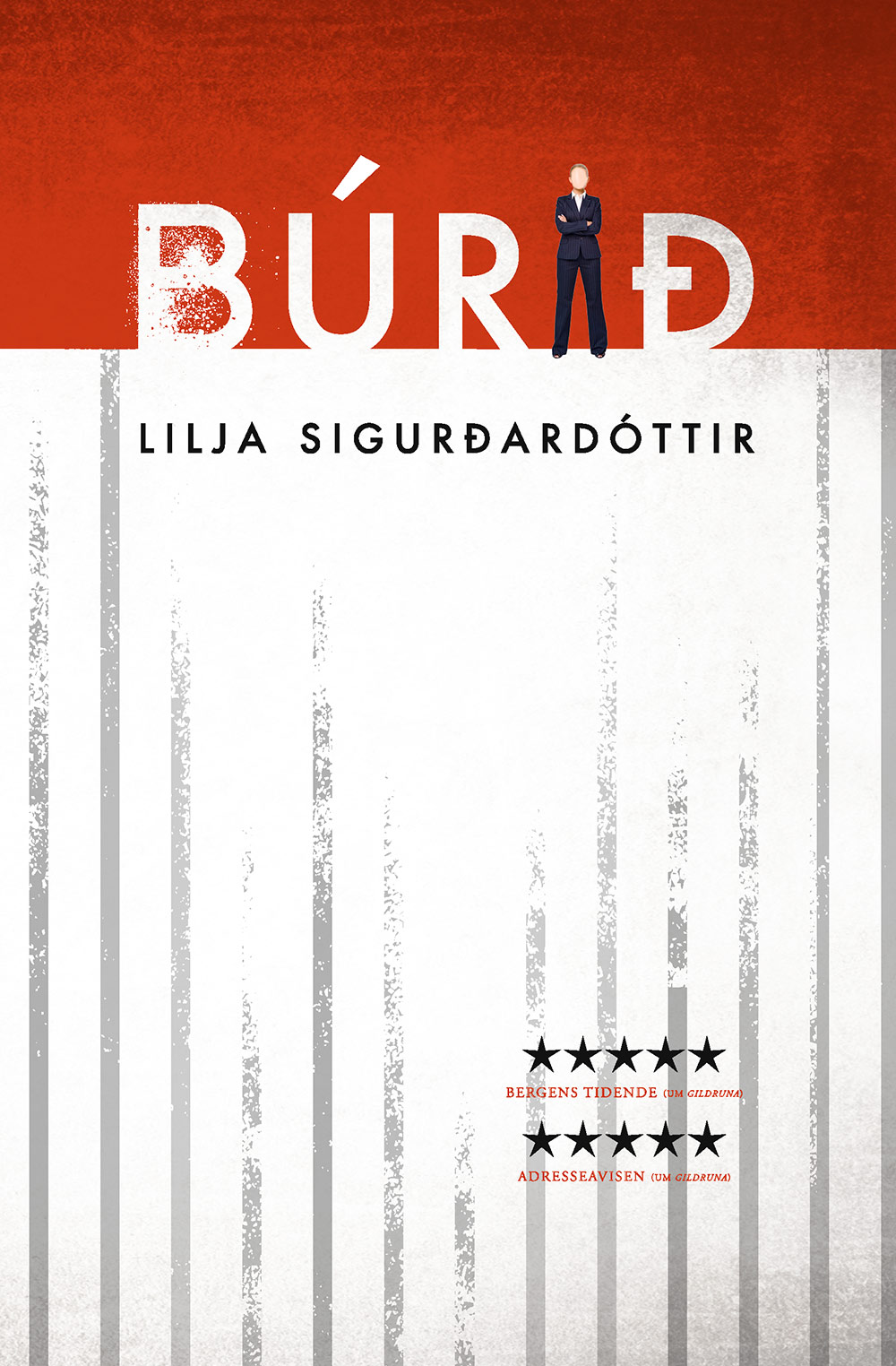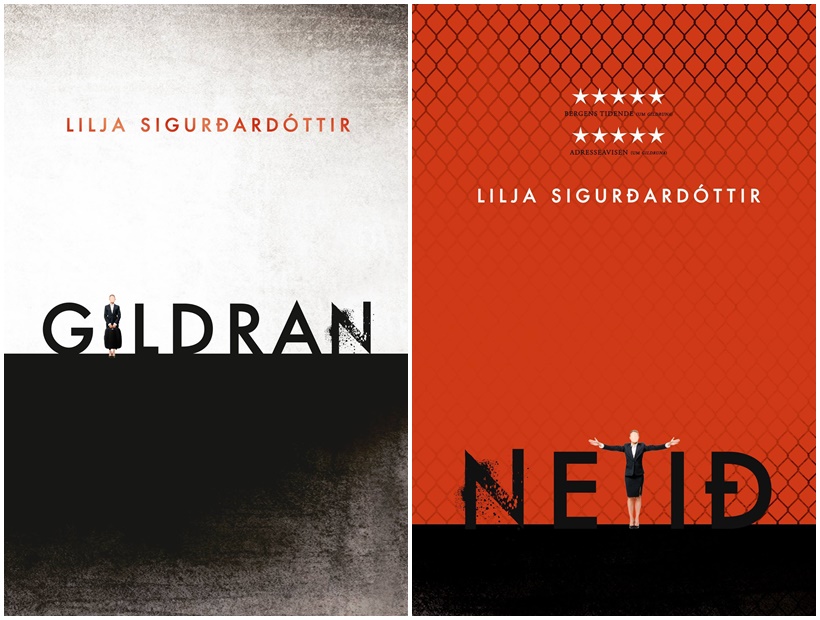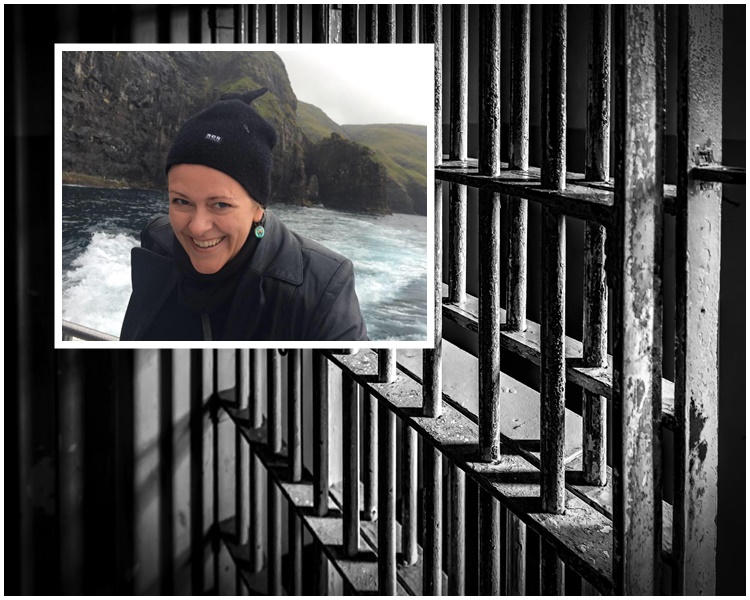The end is near for fans of Lilja Sigurðardóttir’s Reykjavík Noir trilogy. The final instalment of the series, which follows a lesbian drug smuggler, Agla, and her bank executive lover in the aftermath of the financial crisis, will be hitting the shelves this fall.
Although Icelandic readers are eagerly awaiting the third book, the first two books have received rave reviews on mainland Europe. I spoke with Lilja about her international success, but first I wanted to know where the last book in the trilogy takes Sonja, the series’ protagonist.

“The first two books, Gildran (Snare) and Netið (Tangle), are actually in fact one big story divided in two. The second one starts just three or four weeks after the first one ends. The last one, titled Búrið (Cage), starts today. So it’s been quite a few years since we left the characters. Because Gildran (Snare) and Netið (Tangle) take place in 2011 and 2012, and in the new book it starts in the spring of 2017. What has happened in the meantime? Things have happened, people have changed, and you have a different view of the characters and the story.”
Can readers expect a satisfying conclusion to the trilogy?
“Well that is the difficult thing! What readers usually want when you’re writing crime is the bad people to be punished. But my heroes are the bad people, the main characters are a drug smuggler and a bank criminal. So we can ask ourselves what would be a punishment for them, and do we really want them to be punished? So we will have to see if people will be satisfied with the ending. There is some punishment, I will say, for some of the worst people.”
The first two books somewhat mirrored certain current events in Iceland… How does this last book mirror the current moment?
“The story starts, I can say, with the protagonist, the bank criminal, while she is in prison. But actually what I’m mostly taking on is the big aluminium companies and that is something that is always current in Iceland. There are always a lot of questions there, especially regarding in what direction we want to go as a country. Do we want this little island to be a colony for raw production of metals and stuff, or do we want to grow the tourism, and do these things actually go together? What about the environment and our commitments there? Big industry companies are always interesting in thrillers, because they are this big powerful entity. And then you have one of the protagonists, who is a research journalist, who is looking into what these companies are doing. So you have this David and Goliath kind of thing going on.”
“… there are some countries that are still hesitant about this, having an LGBT character who’s a lesbian. But maybe it’s not the readers, maybe it’s the publishing world that is more unsure.”
There has been huge interest in these books beyond Iceland, particularly in France… What’s that been like?
“This is all Icelandic writers’ wildest dreams of course. Icelandic writers, we are writing in such a small language, we have 300,000 people reading it. So it’s such a privilege to be able to get your work translated into a language that more people read. So I am extremely grateful and very, very aware of how lucky I am.”

Why do you think your books have become so popular beyond Iceland?
“There’s a lot of interest in Iceland generally now, I think. And in the crime genre, Nordic Noir is very much in and has been for some years. Big Icelandic writers like Arnaldur Indriðason, Yrsa Sigurðardóttir and now Ragnar Jónasson have been doing really well, and they’ve been plowing the field for the other ones to follow.”
I understand you’ve also just signed a major English book deal?
“It’s world English rights for a publishing company called Orenda Books, and it’s a deal for the first two books. It’s being translated right now, so I’m waiting for the English editor to give me her feedback. When I see how well it is doing in France and how the French readers like the story, I just guess that the English readers will as well.”
“The story starts, I can say, with the protagonist, the bank criminal, while she is in prison. But actually what I’m mostly taking on is the big aluminium companies and that is something that is always current in Iceland.”
Has centering the story around a lesbian character helped or hindered its international popularity?
“I think it’s done both, actually. I’ve been a little bit surprised and very grateful about how well the story did in Iceland. And actually a lot of people have thanked me for giving them insight into a world that’s almost non-existent in Icelandic literature and very little in the crime genre. But there have been some people who has said to me, based on how the story is and how well it’s done that it should have gone to more countries. But there are some countries that are still hesitant about this, having an LGBT character who’s a lesbian. But maybe it’s not the readers, maybe it’s the publishing world that is more unsure.”

What’s it like to be done this chapter of your writing career?
“It’s a strange feeling! It’s kind of a relief to be able to end the story in what I feel is a satisfactory way. But at the same time, I’m going to miss my characters. You get involved with them in a certain kind of way, they become a part of you. And there is always, if I become too heartbroken to say goodbye to them, I could write something about the lost time from 2011 to 2017.”
Do you think that you’ll continue including lesbian characters or other characters who identify as LGBT in your stories?
“Yes, I think so. I have a lead character in mind for my next story who is a straight woman, but there are extra characters and some of them are bound to be LGBT+. Because that’s just my life and these characters are part of my own life. And they’re people who have very interesting lives often, and that is what my work is about, telling interesting stories about interesting lives and interesting characters.”
Lilja’s newest book, Cage, will be released in Iceland in October, with English and French translation released in the following years. In the meantime, she is working on a new series with a new set of characters.


